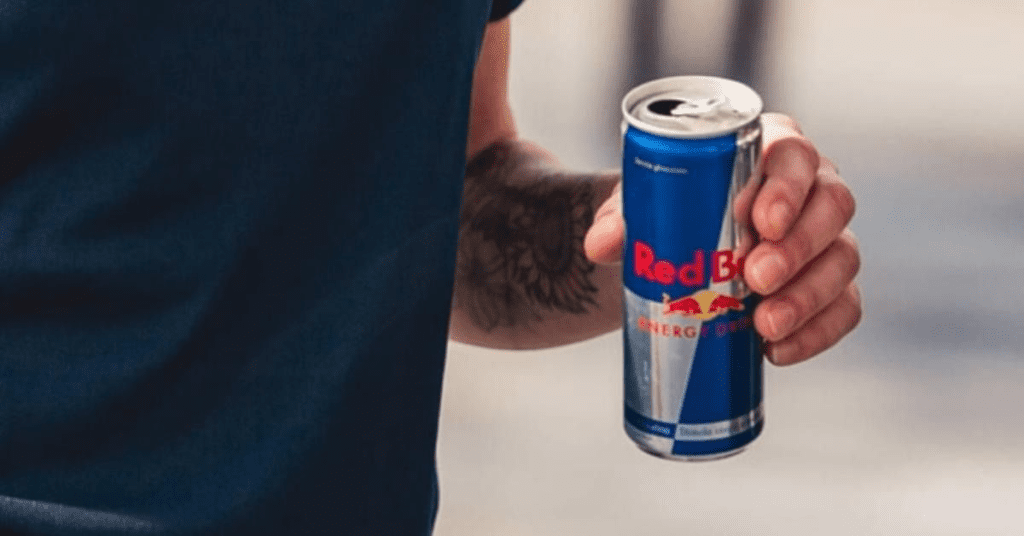Energy drinks like Red Bull are marketed as the ultimate quick fix for fatigue and a fast track to mental alertness. But what really happens to your body after you’ve downed one of these sugary, caffeinated drinks? While the burst of energy may feel satisfying, the reality is that the effects extend far beyond that initial boost. In this article, we’ll walk through the stages your body experiences in the 24 hours following a can of Red Bull, from the immediate rush to the eventual crash.
The First 10 Minutes: A Spike in Blood Pressure and Heart Rate

Within just 10 minutes of consuming Red Bull, caffeine enters your bloodstream. Your body responds by raising your heart rate and blood pressure as it prepares for an energy surge. During this stage, you might feel more alert as the caffeine stimulates your central nervous system. It’s your body’s way of gearing up for what it perceives as a high-energy demand.
Why This Happens
Caffeine is a powerful stimulant that blocks the neurotransmitter adenosine, which makes us feel drowsy. With adenosine out of the way, your brain ramps up dopamine production, giving you that familiar feeling of being wide awake. However, while this rush may feel invigorating, it also places added stress on your cardiovascular system.
15-45 Minutes: The Peak of Caffeine Absorption
In the next 15 to 45 minutes, caffeine levels reach their peak in your bloodstream. You’ll likely feel the most energized and focused during this time, which is exactly what makes energy drinks so popular before intense physical or mental tasks.
The Effects on Concentration
This is when you might feel unstoppable, experiencing increased concentration and alertness. But it’s not necessarily because caffeine is making you “smarter”—it’s simply masking feelings of fatigue and keeping your mind alert. In other words, it’s a temporary fix rather than a long-term solution for productivity.
30-50 Minutes: The Sugar Hits and the Liver Reacts
Red Bull contains about 27 grams of sugar per can, and by now, that sugar is fully absorbed into your bloodstream. As the sugar rush takes effect, your liver responds by releasing insulin to manage the glucose levels in your blood. The excess sugar not immediately used by your body gets stored as fat.
The Downside of Sugar Overload
The combination of caffeine and sugar may leave you feeling euphoric, but it also puts a strain on your liver and pancreas. Regular consumption of sugary energy drinks can lead to insulin resistance over time, increasing the risk of Type 2 diabetes. Additionally, this phase leads to the eventual “sugar crash” when blood sugar levels plummet.
1 Hour: The Sugar Crash and Fatigue
About an hour after drinking Red Bull, you’ll start to feel the effects of the sugar crash. As your blood sugar levels drop, feelings of fatigue and irritability set in, undoing the energy boost you felt earlier. You may even feel more tired than before, a phenomenon many people describe as an energy drink “hangover.”
The Impact of the Sugar Crash
When blood sugar falls rapidly, you’re likely to experience a range of symptoms from mood swings to headaches. This can make you feel sluggish and unfocused—an ironic twist for a drink marketed to increase energy and alertness.
5-6 Hours: The Caffeine Half-Life Kicks In

Caffeine has a half-life of about 5 to 6 hours for the average adult. This means that if you consumed 80 milligrams of caffeine from your Red Bull, about 40 milligrams will still be in your system after six hours. This residual caffeine can interfere with your ability to fall asleep later, especially if you’re sensitive to stimulants.
Caffeine’s Lingering Presence
The longer caffeine remains in your bloodstream, the more it affects your body’s natural sleep-wake cycle. Drinking Red Bull in the afternoon or evening can disrupt your ability to fall asleep at night, leading to a vicious cycle of dependency where you may need another energy drink the next day to combat fatigue.
12 Hours: Caffeine Begins to Leave the System
After 12 hours, most of the caffeine from a Red Bull has exited your bloodstream. However, this process varies based on factors like age, metabolism, and any medications you may be taking. For some people, especially those with slower metabolisms, caffeine can linger even longer, impacting their sleep and mood.
Residual Effects on Sleep

Caffeine can linger in the system longer for children, teens, and people who are pregnant. It’s also important to note that the effects of caffeine on sleep are not just about falling asleep, but also the quality of your sleep. Even if you manage to sleep, caffeine can interfere with your deep sleep stages, leaving you feeling unrested.
12-24 Hours: Withdrawal Symptoms Set In
If you regularly consume energy drinks like Red Bull, you may experience mild withdrawal symptoms between 12 to 24 hours after your last can. These can include headaches, irritability, and even constipation as your body adjusts to the lack of caffeine.
Understanding Caffeine Withdrawal
Caffeine withdrawal occurs because your brain becomes accustomed to functioning with a certain amount of caffeine. When that level drops, you can feel the effects on both your mood and body. For heavy caffeine users, the symptoms can last several days and may feel similar to a mild case of the flu.
Long-Term Consequences: More Than Just a Quick Fix

Drinking Red Bull may provide a short-term energy boost, but the long-term effects aren’t as favorable. Regular consumption can lead to caffeine addiction, poor sleep quality, and even increased anxiety. There are also potential consequences for your cardiovascular health, as the frequent spikes in blood pressure and heart rate place unnecessary stress on your heart.
Is There a Healthier Alternative?
If you find yourself reaching for energy drinks frequently, consider healthier alternatives such as water, herbal tea, or a balanced snack to maintain energy. While it might not pack the same immediate punch as a can of Red Bull, these options support sustained energy without the crash.
Conclusion: The Bottom Line on Red Bull
So, what really happens after you drink a can of Red Bull? While you may experience an initial rush of energy and alertness, the effects are short-lived. You’ll likely experience a sugar crash, caffeine withdrawal, and, if consumed regularly, long-term health risks. Remember, an occasional energy drink might not harm you, but relying on them daily can take a toll on your health.
The next time you’re tempted by that bright can promising quick energy, consider the effects on your body and mind. Sometimes, a brisk walk, a glass of water, or even a quick nap can provide a healthier, more sustainable boost. Your body—and future self—will thank you for it.


